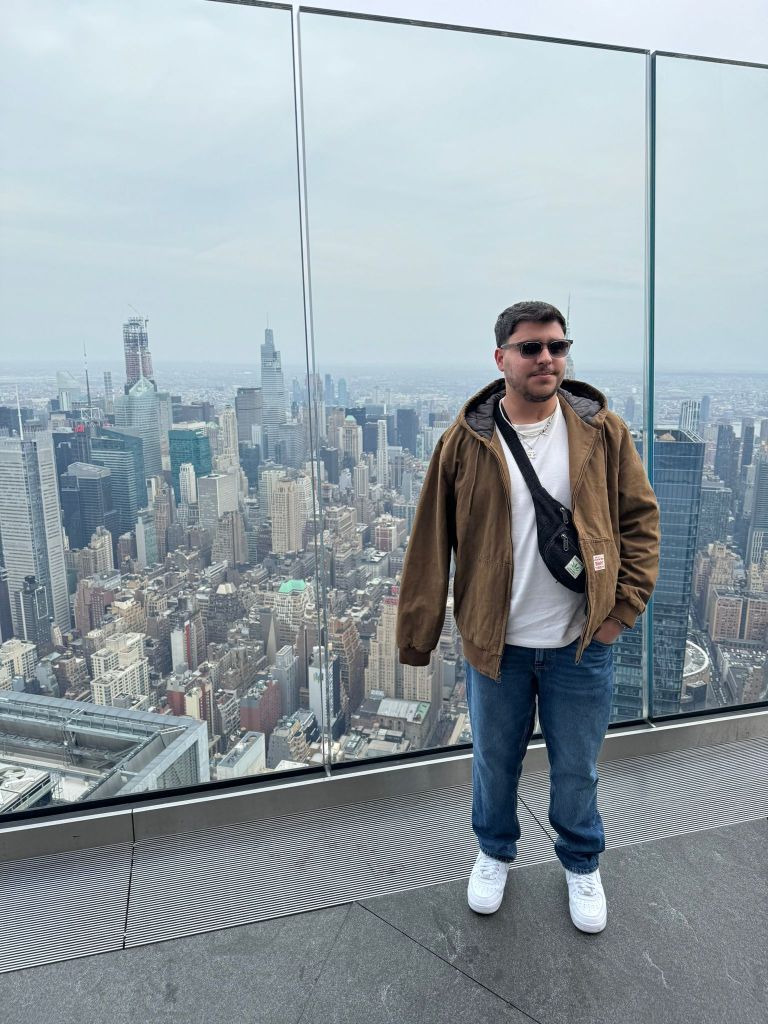Hamas blew off his arm, fellow IDF soldiers mistook him for enemy —now combat medic gets state-of-the art robotic prosthetic in NYC: ‘I will have a normal life’
At 21 years old, Ron Harir is alive against all odds.
When the flurry of frantic texts from his fellow Israel Defense Forces friends started pouring in at a frenzied clip on the morning of Oct. 7 — urgent pleas reading, “Come quickly, they’re killing us” — the off-duty combat medic, who was on vacation, knew he had to spring into action.
Harir, who was due to finish his army service the following month, raced to his infiltrated Nahal Oz army base under heavy Hamas fire to find his friends injured, burnt and killed on that “apocalyptic” day.
He defended his base and treated as many injured soldiers as possible for hours before embarking on a rescue mission to help a group of soldiers surrounded by terrorists.
That move would change his life forever.
Harir’s armored tank was hit by a Kornet missile, sending him flying into the air and ripping off his entire right arm.
After dipping in and out of consciousness alone for hours, he was presumed dead — and nearly shot after being mistaken for a Hamas terrorist before he could muster the energy to prove his identity.
He spent five days in a coma after being airlifted to Soroka Hospital, where his mother sang his favorite John Denver songs by his bedside.
“It was 50/50 chance I may not wake up,” Harir told The Post, noting the grueling two-month hospital recovery.
Yet he considers himself one of the lucky ones.
“They thought I was dead,” he said. “Most people would have died with those injuries in minutes. I had a miracle.”
“A lot of my friends got injured that day. My best friend was killed,” added Hariri, who lost 18 pals that Black Saturday.
Life will never be the same for the young man who hoped to travel to South America with friends for six months once he finished his army service — but he’s determined to move forward with life with strength and fortitude.
“Of course, there’s stuff I can’t do like I did before, but it’s OK. I will have a normal life.”
Israel War Update
Get the most important developments in the region, globally and locally.
Thanks for signing up!
The best doctors and specialists in New York will see to that.
Harir is in town to see top doctors at Columbia to help treat the shrapnel in his face and eye and working with his primary doctor, Dr. Omri Ayalon of NYU’s Center for Amputation Reconstruction as he readies for his robotic prosthetic.
The nature of his injuries is so complex — and rare — that it even stymied Israeli doctors used to grave injuries.
“Israel doesn’t see so many amputees like this — they don’t know how to do this in Israel — they don’t have the capability,” said Rabbi Uriel Vigler, founder of the NYC-based Belev Echad, a group meaning “one heart” in Hebrew, which supports the needs of Harir and other injured soldiers.
So in addition to the trip that Belev Echad sponsored for Harir and other injured soldiers — taking in a Knicks game, getting Apple Pro goggles to help with his vision, peering out the perch of the vertiginous The Edge — Harir saw specialists fashioning his new prosthetic.
“It’s a miracle he’s alive — he had his whole arm blown off, he has no shoulder. His story is crazy and insane,” said Hershey Dauber of Ortho Craft, marveling at the young man’s will to live.
Dauber, who met Harir in Israel and connected him with doctors at NYU Langone, said the prostheses is “as high tech as it comes,” utilizing AI technology that can map Harir’s nerves with more than a dozen sensors all around the front and back of his chest and shoulder that picks up patterns to predict his movements.
“When he wants to do a motion, the computer, AI, knows what tasks he wants to do,” Dauber said of the pattern recognition software that senses what he wants to do. “The prosthetic does the task.”
And that works just fine for Harir.
When he woke up from the coma and realized his arm was gone, “The first thing I said was, ‘OK, cool – I’ll be bionic.’ I have no choice. It’s not going to help me to cry and go down,” he said.
Mom, Elaine, 57, who is back in the Big Apple to accompany her son for the first time since meeting her husband here at age 23, told The Post, “The best thing about New York is the people — there are so many amazing people supporting us.”
While she didn’t recognize her son when she first saw him in the hospital, she is “so proud” of his progress, both physically and mentally.
“When I wake up in the morning, and I see him smile, that’s it for me, there’s nothing else,” said the Scottish native, who moved to Israel at 23. “If I could give him my right hand, I would. Ron is my whole life.”
As for the scores of other soldiers with catastrophic injuries, Belev Echad’s Rabbi Vigler has but one wish.
“Our vision at Belev Echad is to shut down the organization. The sooner the better. We pray every day that there will be no more wars, only peace and that all the wounded should be healed,” said the Upper East Side-based Rabbi Vigler.
“This is the era of Moshiach [the messiah]. But until that day comes, we will be there for Ron and every wounded soldier providing them with everything they need to heal. We pray for Ron’s complete recovery.”





















